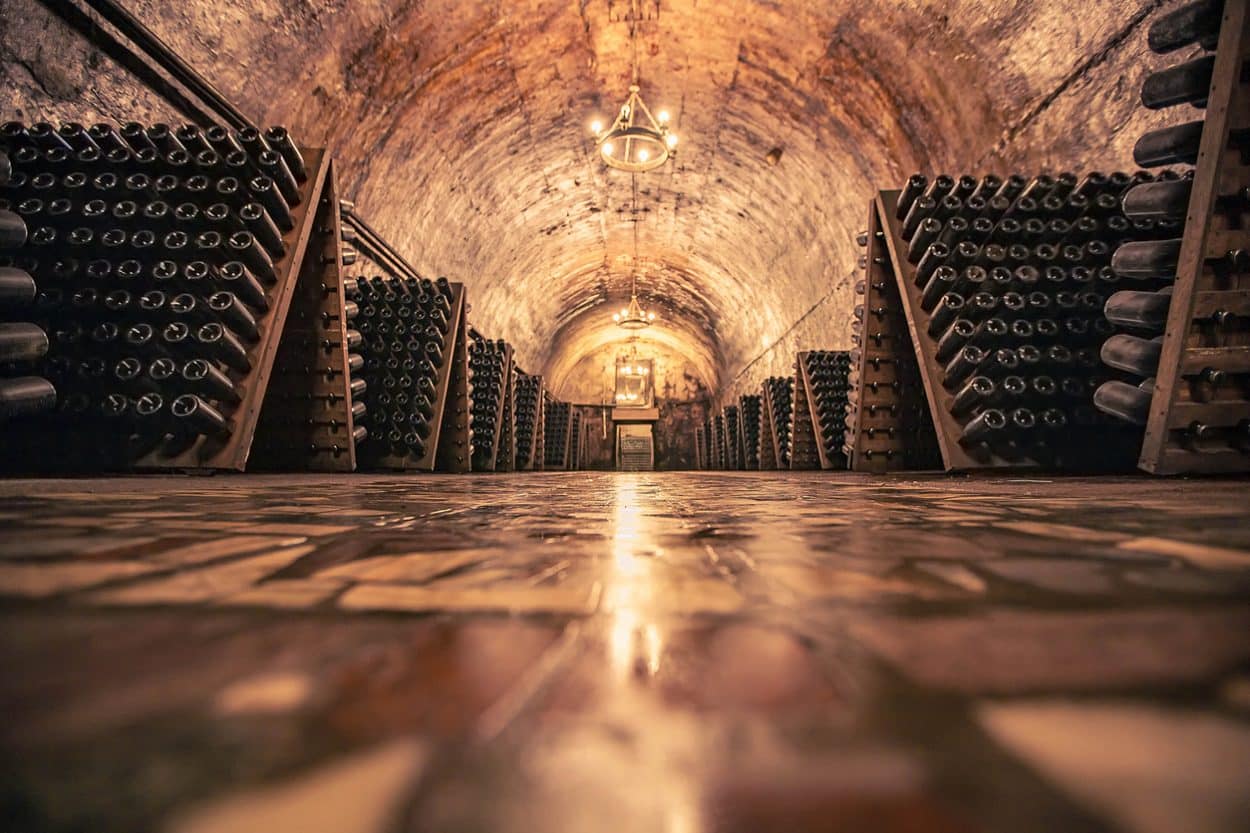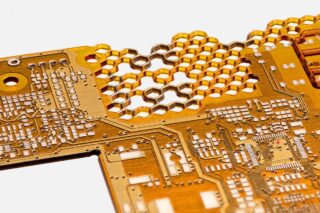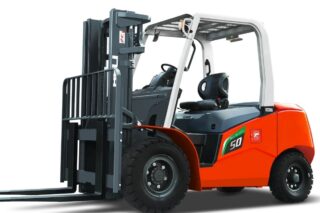Limescale can be a great nuisance and has historically been treated with salt. But there is another solution on the market that employs CO2. We spoke with Ludovic Baudart, CEO of Ecobulles, about how their technology helps fight limescale both in an economic and ecological way and how Champagne houses could benefit from it.
Limescale is a nuisance. It is responsible for the development of bacteria. It decreases the performance of equipment. It generates the overconsumption of energy as 1 mm of limescale results in 10% more energy consumption. Limescale thus represents a significant economic burden for a company. So far, the best solution has been to treat limescale with salt. While this solution has proven to be very efficient for five decades, today it is increasingly being questioned, explained Ludovic Baudart, CEO of Ecobulles:
“From an ecological point of view, salt leads to an overconsumption of water and a discharge of chloride into the wastewater. It also demineralizes water because it depletes it of calcium and magnesium and enriches it with sodium.”
Salt also has storage constraints and the cost of maintaining the system is high as it must be refilled with salt every week, sometimes every day.
According to Mr. Baudart, Ecobulles’ solution does not change the nature of the water and does not lead to water overconsumption.
The CO2 Injection System

The system is composed of a single machine that is placed at the beginning of the water network in order to protect all the equipment.
“The machine comprises a control box that pilots the system.It provides information on the daily consumption of water and the quantity of CO2 remaining in the tank. It also detects possible leaks of water in the system or overconsumption.”
There is also a pressure regulator that stabilizes the pressure in the network and a CO2 carbonator which is where the CO2 is injected. A mixing filter pot ensures a perfectly homogeneous mixture of CO2 gas and water.
“Our CO2 dosages are very low, between 0.1 and 0.2g (100 to 200 mg) per liter of water depending on the hardness of the water. The harder the water, the more CO2 is injected to dissolve it.”
Ecobulles supplies the equipment but an external installer buys it, installs it and ensures the maintenance.
“The installers are often heating and plumbing professionals and the CO2 bottles are supplied by Air Liquide within the framework of an agreement. We adapt the container to provide an autonomy of CO2 between 6 months and 1 year.”
CO2 and Champagne

Mr. Baudart purchased Ecobulles in 2011 but the company was originally founded 30 years ago by a French chicken farmer from the Reims region who was looking for a way to lower the pH of his water in the most natural way possible. He did several tests involving injecting CO2 into water and saw that this was creating a mild natural acid called carbonic acid that effectively lowers the pH of water. He therefore developed a CO2 injection machine for this specific agricultural use and equipped his farm with it.
“What he noticed was that his water had the pH he was looking for but he also did not have any more problems with limestone. This is because when you lower the pH of water with CO2, the carbonic acid it creates dissolves limestone instantly, just like white vinegar or salt do.”
With this success, the farmer approached the Champagne houses of the region to offer his services.
“The Champagne houses have limestone issues and cannot use the classic salt softeners because, as I said before, these increase the sodium content in the water. The result is that the water is enriched in sodium, which is not in the specifications of the Champagne appellation. Our CO2 solution is natural. The selected CO2 is a food quality CO2, it is bacteriostatic and has neither taste, smell, nor residue.”
Mr. Baudart also added that the CO2 used is recycled and filtered by Air Liquide then neutralized in the form of carbonic acid by the Ecobulles’ system.
“This is a truly ecological solution.”
This solution costs between €3,000 and €9,000 for the installation. Then the cost of treated water is below 30 cents per m3 .
“In comparison, salt water softener generates a water consumption of 10% more on average. So our solution allows us to save on average 10% of water.”
Ecobulles now employs 6 people and generates €2 million in turnover. The company is present in France, Belgium, Luxembourg and Switzerland and is now working on penetrating new markets in the Netherlands, UK and Germany.
The company also recently launched Ecobulles Connect to allow users to get data and alerts in real time directly on their mobile phones or tablets.











